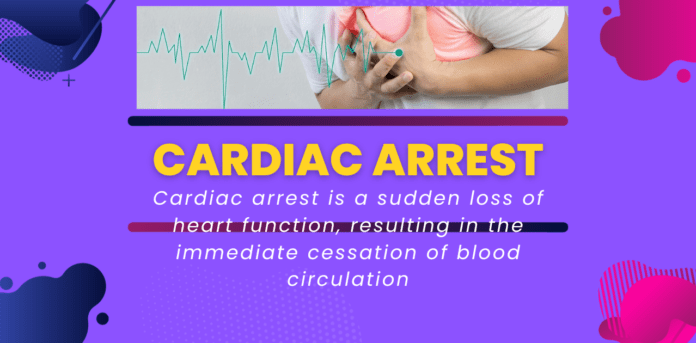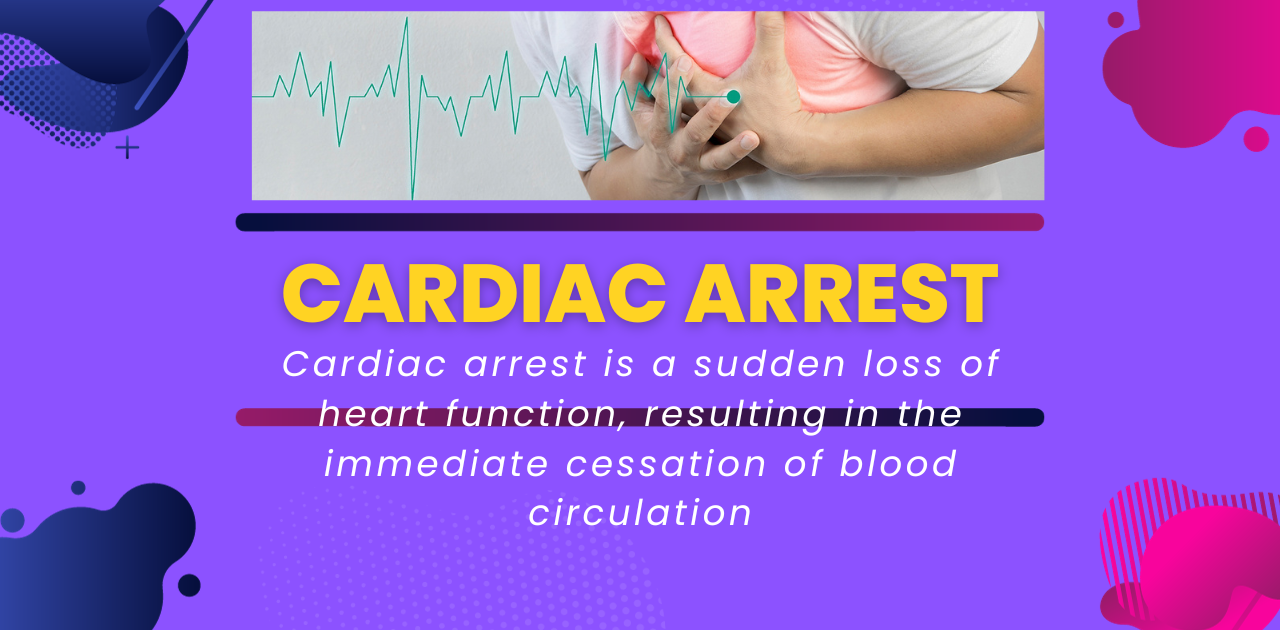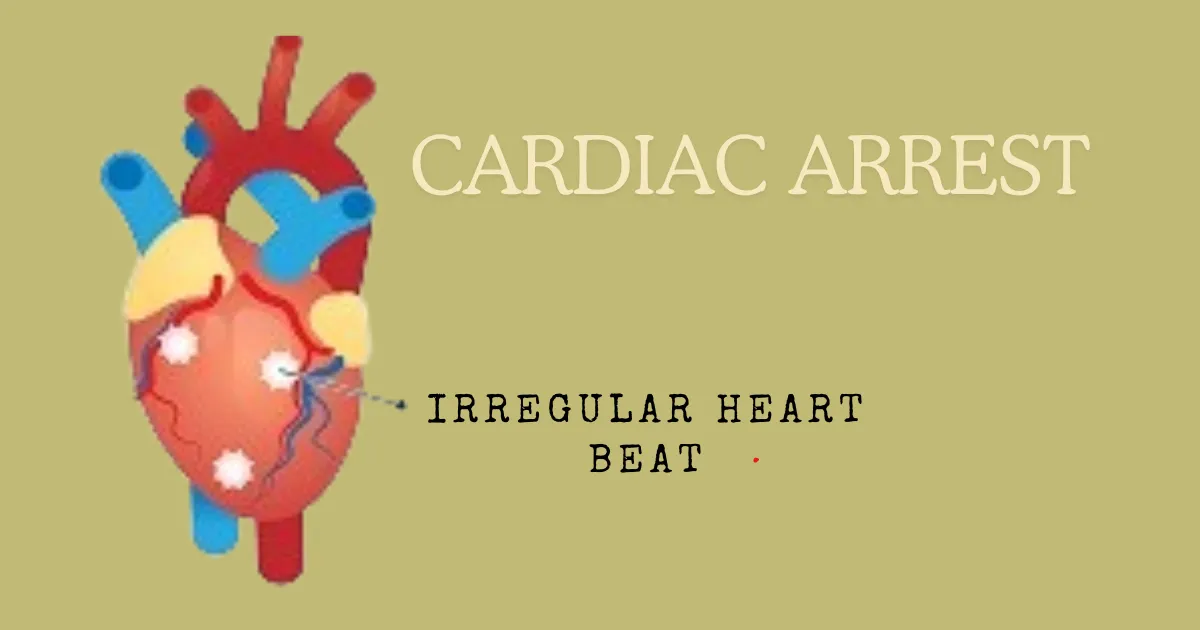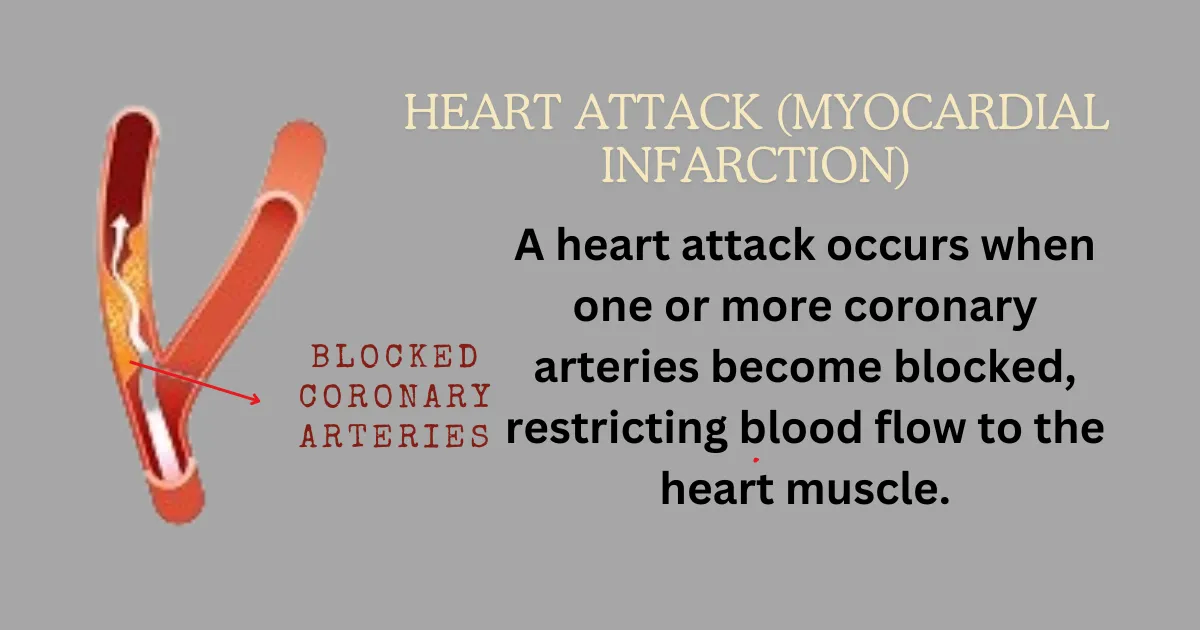Understanding Cardiac Arrest and Differentiating Types of Heart Attacks: A Comprehensive Guide
These are two different things. However, cardiac emergencies are closely related medical emergencies. And the results might be lethal. Both conditions Cardiac arrest and this type of heart attack can be worrisome and require immediate medical attention, but their causes, symptoms, and treatments are different. Let’s explore each of them individually.
Definition
Cardiac arrest, a type of heart attack, is a sudden loss of heart function resulting in immediate cessation of blood circulation. This is an electrical problem within the heart that disrupts its natural rhythm, causing it to stop beating.
Cause
Symptoms
Heart attack (myocardial infarction)
Definition:
Symptoms
Sudden cardiac arrest vs. heart attack
Cardiac arrest, heart attack, stroke, and heart failure
Differences between cardiac arrest and heart attack:
Cardiac Arrest vs. Heart Attack
Cardiac arrest vs. Heart Attack Survival Rate
Cardiac Arrest vs. Heart Attack: Organizations and Resources
| Aspect | Cardiac Arrest | Heart Attack |
|---|---|---|
| Definition | Sudden loss of heart function, causing cessation of blood circulation. | Blockage of blood flow to a part of the heart muscle, leading to tissue damage. |
| Cause | There is an electrical malfunction in the heart’s rhythm. | Blockage in one or more coronary arteries. |
| Onset | Often, it occurs suddenly without warning signs. | Symptoms may develop slowly and persist for several minutes or longer. |
| Symptoms | Sudden collapse, loss of consciousness, and abnormal breathing. | Chest pain or discomfort, shortness of breath, nausea. |
| Treatment | Immediate CPR and defibrillation are needed to restore heart rhythm. | Medicine, angioplasty, or bypass surgery to restore blood flow. |
| Prognosis | Without prompt intervention, it can lead to death within minutes. | Prompt treatment can reduce damage and improve outcomes. |
| Prevention | Difficult to predict and prevent. | Lifestyle changes, medication adherence, and managing risk factors. |
| Long-term Management | Focuses on underlying heart conditions and preventing recurrence. | Emphasizes lifestyle modifications and medication adherence. |
This table provides a clear comparison between cardiac arrest and heart attack, outlining their differences in terms of definition, causes, onset, symptoms, treatment, prognosis, prevention, and long-term management.
Conclusion
In summary, understanding the difference between cardiac arrest and a heart attack is crucial for prompt intervention and improved outcomes. Cardiac arrest is a sudden loss of heart function due to an electrical malfunction, while a heart attack occurs when coronary arteries become blocked. Immediate CPR and defibrillation are critical for cardiac arrest, while heart attacks may require medications or procedures. Survival rates vary, with cardiac arrest being more immediately life-threatening. Being informed and prepared can save lives in cardiac emergencies.
Summary
Cardiac arrest and heart attack are distinct conditions with different causes and treatments. While blocked arteries cause a heart attack, cardiac arrest is a sudden loss of heart function. Knowing the symptoms and acting fast can improve outcomes. CPR and defibrillation are vital for cardiac arrest, while heart attacks may need medication or surgery. Survival rates differ, highlighting the importance of being prepared for emergencies.
(FAQs) of cardiac arrest and heart attack
1. What is the difference between cardiac arrest and a heart attack?
2. What are the symptoms of cardiac arrest and a heart attack?
3. Which is more life-threatening, cardiac arrest or a heart attack?
4. What should I do if I suspect someone is having a cardiac arrest or a heart attack?
If she is in cardiac arrest, call 911 immediately and begin CPR on her if you are trained to do so. Use an automated external defibrillator (AED) if possible. If you are having a heart attack, also call 911. You may then receive medications and treatments to restore blood flow to the heart.
5. Can a heart attack lead to cardiac arrest?
Yes, a severe heart attack can cause significant damage to the heart muscle and lead to cardiac arrest if it compromises the electrical system.
6. Can I recover from a cardiac arrest or heart attack?
Recovery depends on several factors, including the speed of medical intervention and the extent of the damage. Most heart attack survivors can recover with proper treatment and lifestyle changes. Although there is a slim chance of survival after cardiac arrest, defibrillation and immediate resuscitation can increase that likelihood.
7. How can I learn CPR and how to use an AED?
You can learn CPR through courses offered by organizations such as the American Heart Association and the American Red Cross. These courses often include his AED training.
8. Are there any risk factors for cardiac arrest or a heart attack?
Common risk factors associated with heart attacks encompass high blood pressure, elevated cholesterol levels, smoking, obesity, and a familial predisposition to heart disease. Conversely, factors linked to cardiac arrest may involve a history of irregular heart rhythms, specific medications, and pre-existing heart conditions.
9. Is it possible to prevent cardiac arrest or a heart attack?
Although some risk factors (such as family history) cannot be changed, lifestyle changes such as a heart-healthy diet, regular exercise, smoking cessation, and managing chronic diseases can reduce the risk of cardiac arrest and heart attack.
10. Are there any organizations or resources that provide information about cardiac emergencies?
Yes, organizations such as the American Heart Association, the American Red Cross, and local health care providers offer resources and training on how to recognize and respond.







